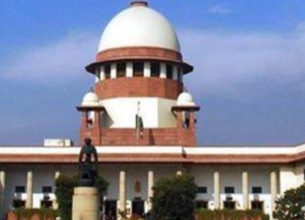RIGHT TO INFORMATION (RTI) ACT
19, Dec 2019

Prelims level : Right Issues
Mains level : GS-II Statutory, Regulatory and various quasi- Judicial Bodies.
Why in News?
- Recently, Chief Justice of India has stated that there is backlog in RTI filing because of Information Commission vacancies.
About Central Information Commission
- It consists of the Central Information Commissioner and more than ten Information commissioners.
- The President of India appoints the Chief Information commissioner and the information commissioners on the recommendation of the committee consisting of the Prime Minister as chairperson, the leader of the opposition in the Lok Sabha and union cabinet ministers nominated by the Prime Minister.
- It has a tenure of five years or until they attain age of 65 years.
RTI Act 2005
- The Right to Information Act 2005 or RTI 2005, came into force in order to encourage a corruption free, transparent and accountable form of government in which the citizens feel a sense of power and safety.
Provisions:
- Under the Act, a citizen can demand from any public or government authority any information as long as it does not pertain to national security and defence or some personal information and the authority is supposed to respond within a period of 30 days to the application.
RTI Act Information Exclusions:
- Under section 8 of the RTI Act, 2005 Govt/public authorities are exempted from sharing following information:
- Affecting the Sovereignty, Integrity, Security, Strategic interest, Scientific interest or Economic interest of the State of India
- Affecting relation of State of India with Foreign State
- Forbidden by any court of law in India
- Breach of privilege of State assembly or Parliament of India
- Intellectual Property Rights, Copyright, Commercial Confidence or Trade Secrets
- Available to a person in his fiduciary relationship, unless disclosure is required in larger public interest
- Received from foreign Government
- Risk the life or physical safety of any person
- Impact or obstruct legal investigation
- Minutes of Union Cabinet meeting including discussion between Ministers, Secretaries or Govt officers
- Personal information that is breaches of Privacy
Features of the Act:
- Section- 2 (f):“Information” means any material in any form, including Records, Documents, Memos, e-mails, Opinions, Advices, Press releases, Circulars, Orders, Logbooks, Contracts, Reports, Papers, Samples, Models, Data material held in any electronic form and information relating to any private body which can be accessed by a Public Authority under any other law for the time being in force.
- Section- 2(j): “Right to Information” means the right to information accessible under this Act which is held by or under the control of any public authority and includes the right to:
- Inspection of work, documents, records;
- Taking notes, extracts or certified copies of documents or records;
- Taking certified samples of material;
- Obtaining information in the form of diskettes, floppies, tapes, video cassettes or in any other electronic mode or through printouts where such information is stored in a computer or in any other device.
- Section 4:It requires Suo motu disclosure of information by each public authority. However, such disclosures have remained less than satisfactory.
- Section 6(2): “An applicant making request for information shall not be required to give any reason for requesting the information or any other personal details except those that may be necessary for contacting him.”
- Section 8(1)(j):“The information which cannot be denied to the Parliament or a State Legislature shall not be denied to any person” under the RTI Act.
Major Issues related to RTI:
- Policy paralysis due to RTI.
- The increase in RTI filings makes the bureaucrats to fear about the RTI revelations, which makes them to delay the decisions resulting in policy paralysis.
- Numerous vacancies in Information Commission
- Government failing to fill the vacancies in information commissions timely leads to piling up of backlogs.
- Issue of “locus standi”
- RTI act doesn’t require “locus standi” to apply for information, which result in increase of irresponsible RTI’s, which increase the burden on existing personnel.
What is locus standi?
- Locus standi is the ability of a party to demonstrate to the court sufficient connection to and harm from the law or action challenged to support that party’s participation in the case.
Way Ahead:
- The transparency audit by the government found poor disclosures among most of central Public Authorities. By increasing disclosures and filling vacancies, the RTI load can be eased.
- If the locus standi of applicants is made a criterion then the rejection rate will rise significantly.
- By filing the vacancies in CIC and IC, the issues related to RTI will be resolved








